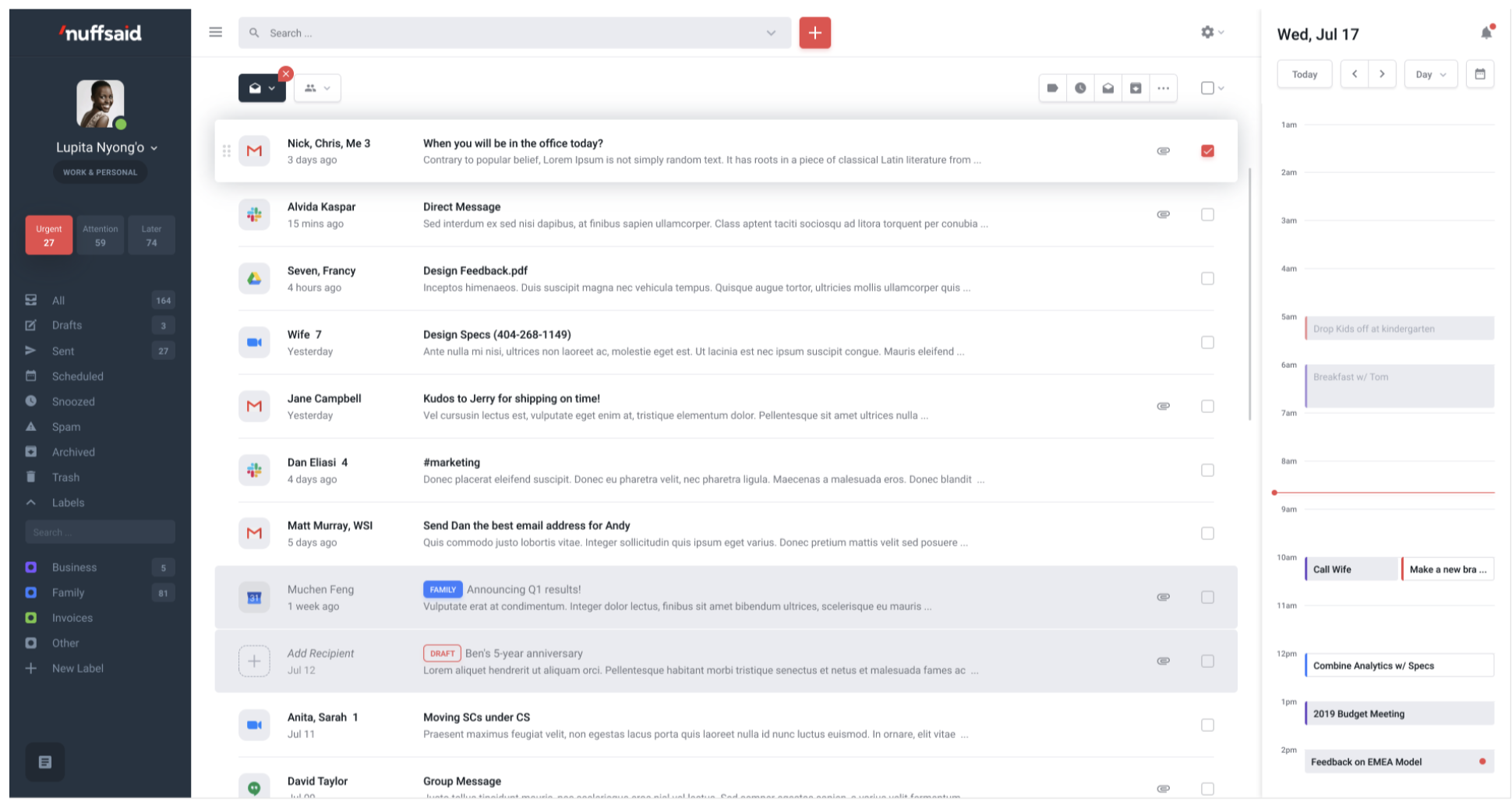There have been plenty of stories written about the so-called “Slack-lash” and the growing unrest among workers dealing with DM interruptions that take their attention away from the task at hand. Slack is a poster child for the problem, but VCs have invested heavily in a number of collaboration tools over the past several years that have compartmentalized chat and commenting systems and have left workers reeling.
It seems fairly likely that we’ve reached peak VC interest in collaboration, but VCs are dealing with any slowdown by betting more heavily on tools that help workers make sense of the panoply of slick interfaced messaging tools. The latest bet, ’nuffsaid, is, yes, yet another productivity startup, though one that seems devoted to making the messaging realities of 2020 employment a bit more tolerable.
The Utah startup is emerging from stealth, launching the first element of their productivity platform in early access, and disclosing that they’ve raised $4.3 million in seed funding from General Catalyst, Google’s Gradient Ventures, Global Founders Capital, Work Life Ventures, SV Angel and Wasabi Ventures.
The oddly named company is releasing its first oddly named product, ‘nflow, into early access, bringing multiple collaboration platforms and a calendar into a single inbox. Just as the algorithmic timeline shaped how we digest the firehose of social media content, algorithmic inboxes might be the solution to a Slack-lash. And ’nuffsaid is taking this algorithmic approach for prioritizing Slack messages, as well as emails, texts and Zoom messages, with ‘nflow. The searchable unified inbox brings all of your messages into a single app, letting you know what’s urgent and what can probably wait until you’re finished taking care of the task at hand.
“We think there’s going to be an entire category of products that are all about adding AI into existing workflows. With ‘nflow, we think we’re taking our first baby step to our vision of that future,” CEO and co-founder Chris Hicken tells TechCrunch. Hicken was previously COO of UserTesting.

One of the more exciting elements of ‘nflow is the way it brings the calendar inside the communications hub. Google Calendar is still among the more estranged elements of productivity workflows. Using messages and emails as the basis for calendar events has always been a wishlist item, but the integration is rarely tight enough. Although ’nuffsaid’s drag-and-drop interface for creating calendar events while tagging team members and adding additional info showcases seems to be a pretty attractive solution, I’ll wait until I can poke around the app myself before making any full-throated endorsements.
The ’nuffsaid team says ‘nflow will launch commercially at (a rather pricey) $25 per month, but that people who sign up for their early access waitlist will unlock a lifetime rate of $10 per month.
The team of 18 has bigger near-term ambitions than the product they’re launching in early access today. If ‘nflow represents a more mass-market approach to delivering a productivity tool to workers frustrated by a messaging overload, their future launches signify a desire to dig deeper into specific enterprise workflows and bring specific types of teams on board.
Over the summer, the company plans to roll out a separate AI-driven customer success module that integrates with a variety of apps to give workers more actionable insights on what tasks are the most critical to maintaining and building customer relationships. The startup plans to build and roll out dedicated versions of the module for engineering, product and marketing, as well.
“There are so many collaboration tools, what I like about ’nuffsaid is that it’s where the work is actually happening and they’re not asking users to change their procedures,” General Catalyst Managing Director Niko Bonatsos tells TechCrunch. “Users still have the same email address, they’re still contacting their customers the same ways, they don’t have to start doing unnatural things that disrupt their workflows.”
